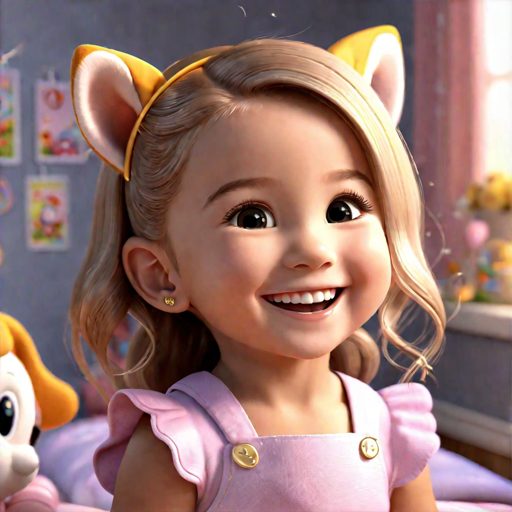
Tiny Ears, Big Smiles: Nursery Rhymes
Recommended for Early Childhood Development
Hey there, friends! Today, we’re diving into a fascinating topic that’s as delightful as a well-loved nursery rhyme. I’m channeling my inner parent here to bring you an easy-to-understand breakdown of a recent study that’s all about the power of nursery rhymes and their impact on the tiniest members of our society – newborns.
So, grab a cup of tea, get comfy, and let’s unravel this intriguing piece of research together.
Listen to the news
The Foundation of Language Learning in Babies
Early Exposure to Nursery Rhymes:
- Babies, just a few months old, absorb more from the melodies and rhythms in nursery rhymes than from regular baby talk. It’s similar to how we might find it easier to remember a catchy tune than a spoken sentence. For instance, when a baby hears the rhythm in ‘Humpty Dumpty’, they’re not just entertained; they’re learning how language flows and feels.
- Initially, babies tune into the rhythm of speech rather than individual sounds. Think of it like dancing to the beat of a song before learning the lyrics. For example, a baby listening to ‘Baa Baa Black Sheep’ focuses on the rhythm and tone first, not on what ‘Baa’ or ‘Sheep’ actually means.
Scientific Insights from Brainwave Studies
- Scientists used brain imaging to see how babies react differently to rhythmic patterns (like changes in tone) versus phonetic patterns (like differentiating ‘pa’ from ‘ba’). It’s like using a high-tech camera to capture how a baby’s brain ‘lights up’ when they hear different aspects of language.
- Newborns take time to process individual speech sounds, a skill that develops over several months. So, if ‘mama’ and ‘papa’ sound similar to a newborn, that’s because they’re still figuring out the building blocks of speech.
Rhythm: The Key to Early Language Development
- Infants use the rhythm in speech as a base to add more complex language skills. It’s like laying down a rhythmic foundation before building the walls of words. In other words, the rhythm in ‘Jack and Jill’ helps a baby understand where one word ends and another begins.
- This study highlights that a particular rhythm pattern is common in languages worldwide, underscoring its importance in language development. Thus, whether it’s in English, Spanish, or Japanese, nursery rhymes across cultures use a similar rhythm that babies latch onto.
- Singing and engaging in nursery rhymes with babies significantly impacts their language development. Hence, regularly singing ‘Twinkle, Twinkle, Little Star’ to a baby isn’t just bonding time; it’s actively helping them learn language patterns.
To all the parents and caregivers out there, keep those nursery rhymes flowing. You’re not just entertaining your babies; you’re nurturing their future in language and communication. And that, my friends, is a beautiful thing.
Let’s cherish these moments and the incredible journey of learning they bring.
Stay tuned for more insights and explorations into the wondrous world of childhood development. Until next time, keep those nursery rhymes alive and thriving!
Similar Stories
- Early Childhood Nutrition: Smarter Starts Here?
- Developmental Skills: Early Talkers’ Secret?
- Screen Time: Shaping Children’s Sensory Abilities?
- Kids’ Bones Thrive: Wellbeing in Green Spaces
Curious Times is a leading newspaper and website for kids. We publish daily global news aligned to your learning levels (also as per NEP 2020): Foundational, Preparatory (Primary), Middle and Senior. So, check out the News tab for this. We bring kids’ favourite Curious Times Weekly newspaper every weekend with top news, feature stories and kids’ contributions. Check out daily JokesPoke, Tongue Twisters, Word of the Day and Quote of the Day, kids need it all the time.
ME – My Expressions at Curious Times is your place to get your work published, building your quality digital footprint. And it is a good way to share your talent and skills with your friends, family, school, teachers and the world. Thus, as you will step into higher educational institutes your published content will showcase your strength.
Events, Quizzes and Competitions bring students from over 5,000 schools globally to participate in the 21st-Century themes. Here schools and students win certificates, prizes and recognition through these global events.
Sign-up for your school for FREE!
Communicate with us: WhatsApp, Instagram, Facebook, Youtube, Twitter, and LinkedIn.
0 (Please login to give a Curious Clap to your friend.)
